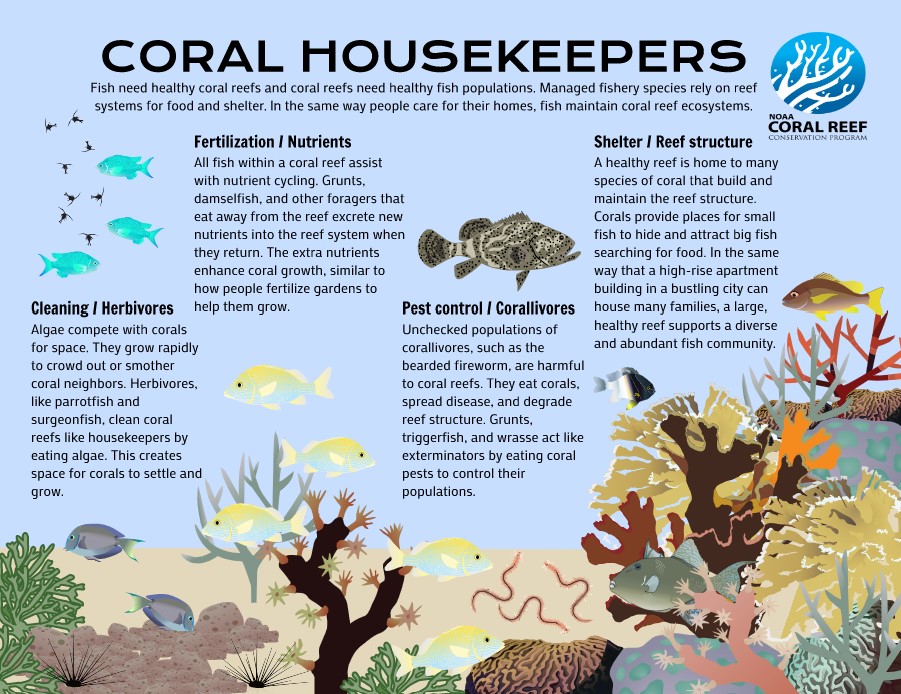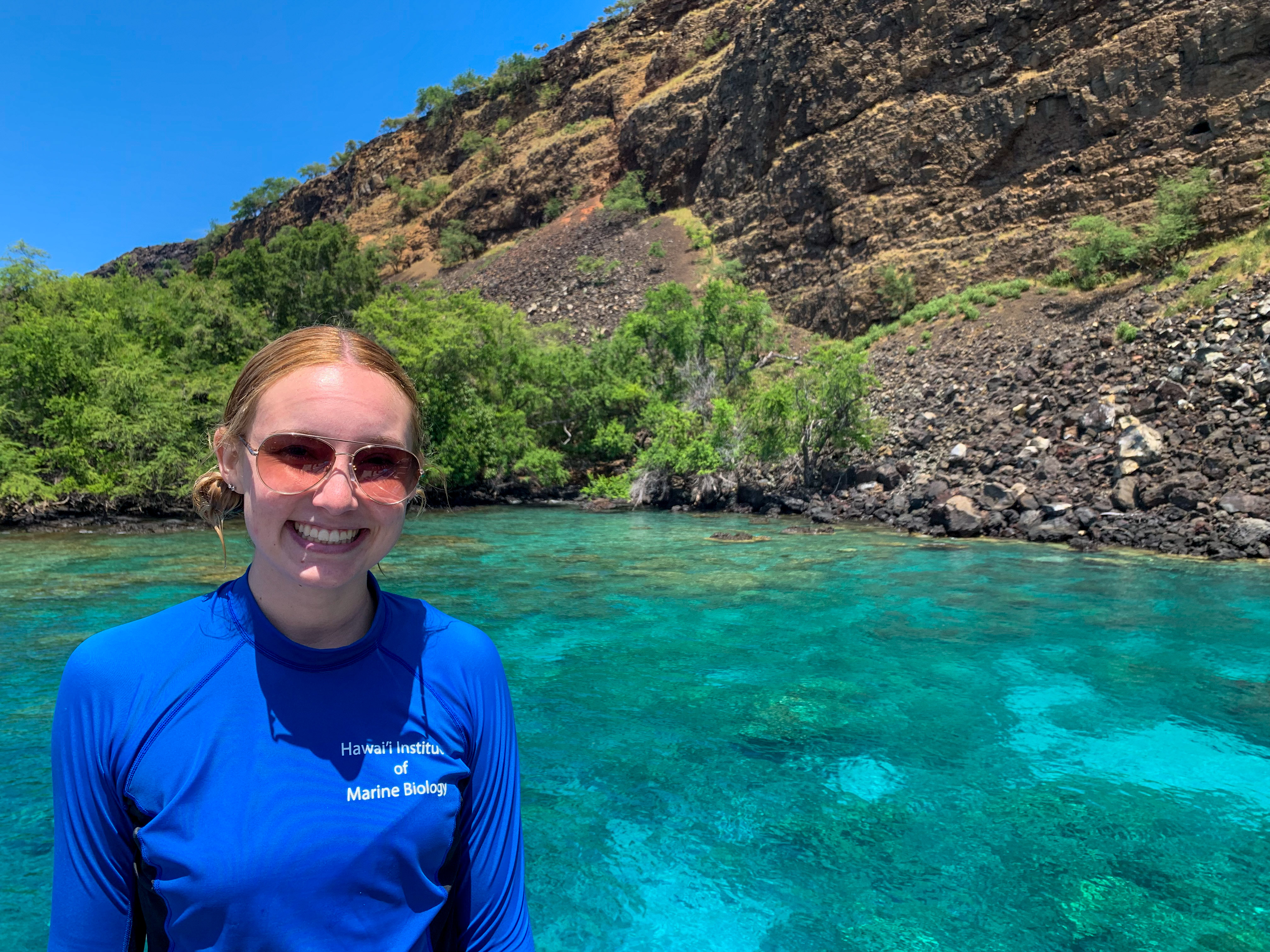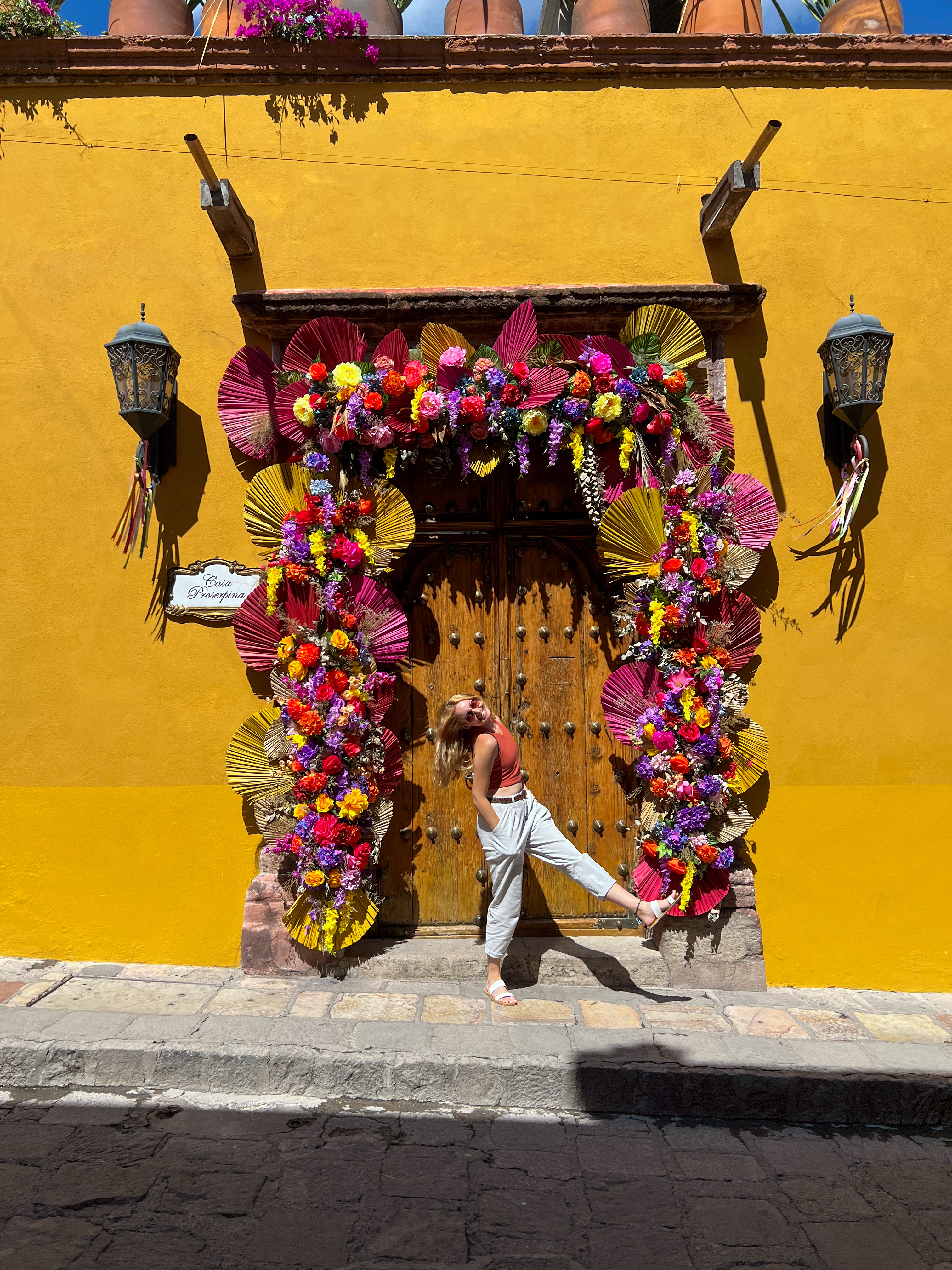OCTOBER 2022
Victoria's Blog
Victoria Vinecke, graduate student
1 October 2022
My name is Victoria, and this is my very first quarter as a graduate student at WWU. I have had quite a busy summer working on my concept map, reading scientific papers that correlate with my project, working on eDNA samples, and starting to outline ideas for my thesis proposal. I am excited to get out in the field and see some seal activity! I am extremely thankful for the opportunity to be apart of Alejandro Acevedo’s Marine Mammal Ecology Lab! I look forward to finally meeting all the lab mates this quarter!
I graduated with a B.S. in wildlife resources from the University of Idaho in 2020. I worked for Dr. Waits in her laboratory for ecological, evolutionary, and conservation genetics as her full-time lab technician up until I moved to Bellingham, WA for graduate school. I worked closely on various PhD student projects, and I’m thrilled to have the chance to conduct my own research starting this fall quarter!
For my thesis I will be utilizing eDNA samples to genetically identify harbor seals within Whatcom Creek located in Bellingham, WA with the hopes to sex individuals, analyze seal sex ratios, and investigate unknown prey items in the creek. I will be filtering water from the creek to potentially collect eDNA that has been shed from the harbor seals and various unknown prey items. I will also be taking over the Whatcom creek seal observation project to collect foraging behavior data and photo identification of individuals. I aim to use photo identification alongside DNA collection to assign sex to individual seals.
On top of starting grad school and working on my project I will also be a TA for the first time which is intimidating but I know ill get the hang of it. I am over the moon that I get to attend in-person classes and collaborate with fellow peers this year. Ending undergraduate school in the middle of a pandemic made graduating feel unreal, so it is nice to be back in-person for class.
I am sure I will have tons to say about field work next month!
Until then,
Victoria Vinecke
Kate's Blog
Kate Clayton, undergraduate student
1 October 2022
Hello again!
It is so nice to be back at it in the Marine Mammal Ecology Lab! This is my last quarter at WWU as I am hoping to graduate in December, so I am hoping to enjoy each and every one of my last moments working in this wonderful lab!
September has been a chaotic month between the start of school and getting everyone settled into the lab, but it sure has been fun! I am definitely going to miss this.
My fellow managers and I (Victoria, Bri, and Alex) have been training students on observation protocol and preparing them for when the seals return. Both the managers and the students have been doing an incredible job with this and I am thoroughly impressed with everyone’s work ethic, enthusiasm, and quick learning capabilities. Bri had also been doing an amazing job with managing the schedules and emails to the group which has been a major help! Given the hatchery’s expected Chinook return, we are hoping to start seeing seals in the next couple of weeks.
Since Alejandro is on sabbatical this year, the lab managers (Victoria, Alex, Holland, Bri, and I) have decided to continue running our weekly lab meetings. Our first meeting is scheduled for this Friday (9/30), and we are planning to brainstorm with the students on what topics they want to discuss this quarter.
I have also been working on getting the new WildID update onto our lab computer and trying to see if I can re-incorporate the software into our IDing process. I still have some fiddling to do, but if I succeed, we would not need to train our students on how to photo ID manually (which is a long, arduous, and error prone process). That said, we have had some issues with the software in the past, so I am not holding my breath. I will know in the next couple of weeks if this is feasible and if I need to make any changes our photo cropping protocol. Once this has been sorted, we will begin training our students on the cropping and naming process.
In addition to the lab manager duties, myself, Kathleen, and our fellow co-authors have begun the manuscript writing process. We are hoping to submit the paper by the end of this year or the beginning of next to the Journal of Applied Ecology. Kathleen and I made a list of possible journals and concluded this was our #1 pick given the scope in relation to our paper. The next several months are going to be busy with writing, editing, and tying up loose ends with 2021 data. I am hoping I can stay on top of everything!
Since my last blog, Kathleen has graduated and completed her master’s thesis. I was lucky enough to attend her final presentation over the summer and she did an incredible job! I am so proud of her and the incredible work she has done, and I am very excited to see what she does next. Whoever her future employer is, please know you are beyond lucky to have her join your team!
Until next month,
Kate
Holland's Blog
Holland Conwell, undergraduate student
1 October 2022
It’s been a busy start to fall quarter! I returned from a wonderful trip to Greece, immediately moved into my new apartment, and then hopped back in the air once more for a trip to California. Since then, I’ve been able to settle in a bit more as well as settle into my classes for this quarter!
After a couple rounds of edits, I now have a finalized poster that I’ll be presenting on the 6th as the conclusion to my summer research! I feel so lucky to have been able to focus solely on research this past summer, and I’m definitely going to miss the summer research program. That being said, I’m pretty excited to see everyone’s posters and findings soon. I’ve also been focusing a lot of attention on getting the log pond project set up for the fall, which has entailed lots of coordination with folks about scheduling and registration for the quarter.
My most daunting task thus far though has been figuring out how I’m going to get a full draft of my independent project manuscript finished by the end of this quarter. I put together a schedule that should hopefully keep me on track, and I started this last week with attempting to consolidate my results. I’ve run so many analyses and made so many figures, and I wanted to make sure things didn’t slip through the cracks. Because of this, I poured all my results into a spreadsheet and used this to draft a working outline of the results section. I’m hoping to get lots of writing done in the next couple of days, and I’m excited to see how it all comes together!
Alexandrea's Blog
Alexandrea Otto, graduate student
1 October 2022
Hi there, my name is Alexandrea (she/her/hers). I go by either Alexandrea or Alex, either are good by me! I am currently starting my first quarter here at Western as a master’s student co-advised through Dr. Alejandro Acevedo-Gutierrez and Dr. Dietmar Schwarz, and I’ll be joining the wonderful Marine Mammal Ecology Lab! Graduate school for marine biology has been a long goal of mine so I am beyond excited to finally be here and get started!
I grew up mostly in the Midwest, and I graduated from the University of Nebraska-Lincoln (UNL) in 2020 with a B.S in Fisheries and Wildlife in an emphasis in Conservation Biology and a minor in Biological Sciences. The last two years, I’ve worked as a lab tech at UNL in Dr. Pegg’s Fisheries Ecology Lab and Dr. Fernando’s Microbial and Ecology Systems Biology Lab on a project using environmental DNA (eDNA) to monitor aquatic invasive species in Nebraska’s streams. I come from the very (very) land-locked state of Nebraska, but have kept my passions for marine biology alive by applying what I have learned in Nebraska to different projects in marine biology. Past projects I have investigated include “Heart Rate in Northern Elephant Seals under Different Handling Conditions” through Moss Landing Marine Labs as part of the Monterey Bay Regional Ocean Science REU (Research Experiences for Undergraduates) and “Diet Composition and Analysis of Fish Species Consumed by the Eurasian Otter in a Marine/Costal Environment” through the Bottlenose Dolphin Research Institute (BDRI) in Galicia, Spain, as part of my undergraduate thesis. Along and in-between the way, I have met amazing grad students and mentors and have been able to help on many other neat projects ranging from behavioral assessments of sea otters off the coast of California, to cetacean behavioral assessments in the open waters off of Spain, to freshwater fish surveys along the Missouri River in the Midwest. I am a strong believer there are many pathways in marine biology and science to get to your interests and goals (even if you come from land-locked state, with no ocean in sight). Everyone’s story is different, and that is incredible!
I am stoked to be starting my graduate thesis investigating genetic similarity in harbor seal haul-out sites in the Salish Sea relative to geographical distance. I will be utilizing least invasive scat sampling and SNP (single nucleotide polymorphisms) methodology to ask questions of genetic similarity. I feel very fortunate and grateful to be joining the Marine Mammal Ecology Lab, as I will be building off of past students’ work and theses.
So far in Bellingham and Western, I have felt welcomed with open arms and with immense support! Things are already in full speed with teaching an ecology lab, helping out with seal observations, working on my thesis outline, and starting courses of my own! I am excited though in these next two busy years to grow as an individual and as a scientist!
Till next time!
Maddie's Blog
Madison Gard, undergraduate student
2 October 2022
Back to school and starting my fourth year of study at WWU! The summer was full of learning experiences and unique opportunities. I spent the first 10 weeks as a Hollings intern for NOAA’s Coral Reef Conservation Program in Silver Spring, Maryland. With Tauna Rankin as my mentor, I completed a science communications and capacity building project focusing on the relationships between fishery-managed species and their coral reef environments, advocating for how sustainable management and conservation of each is mutually beneficial. I created 3 public-facing infographics that are in the process of being published on their website as well as a spreadsheet library for managers and researchers to have easy access to the latest published and grey literature.

Figure 1. Atlantic basin version of Coral Housekeepers infographic, created by Madison Gard and NOAA’s Coral Reef Conservation Program. Once approved by formal review, will be published here: NOAA Coral Reef
At the end of August, I was invited to attend the 45th Coral Reef Task Force Meeting in Kona, Hawaii to present my communications products. I presented in the All Islands Committee meeting on Sunday, August 28 and was invited later in the week to present in the Steering Committee meeting on August 31. It was an amazing experience to learn from top experts in the field working on coral conservation and restoration issues. I think this may be a field of study I’d like to pursue further, and am pumped to learn more about these issues in the water quality and ecotoxicology courses I’m taking this fall. While in Hawaii, I was able to snorkel on a few reefs and saw my first ever octopus! It was magical to watch it swim until it paused on a coral and camouflaged itself, maybe 3 seconds later a large jack swam by. A little further down, I saw an eel come out and swim to switch hiding spots. The islands were beautiful. I was grateful to visit the native families of Miloi’i and learn how they are monitoring and protecting their reefs from overfishing.
Figure 2. Maddie after snorkeling in Kealakekua, Hawai'i.
From Kona, I flew to León, México to meet my education abroad group in the International Business and Environmental Sustainability Global Learning Program. It was awesome to have almost three full weeks to practice my Spanish everyday, and I feel more confident in my ability to hold simple conversations. We stayed in a hostel in central San Miguel de Allende, and drove to Guanajuato and Dolores to learn about the historical events leading to the country’s Independence Day. Spending time to learn from nonprofit organizations like Caminos de Agua, who are working to provide rainwater harvesting and filtration systems to rural communities, was inspiring. We also visited Via Organica, a zero-waste community farm and restaurant that hosts workshops to teach sustainable agriculture methods. The grounds there were breathtaking, y la comida fue deliciosa.
Figure 3. Maddie in front of decorated door in San Miguel de Allende.
I got back to Bellingham on September 15, just in time to move into my new house and unpack before classes started on Wednesday. Though I’m still settling in, my experiences this summer reminded me of my passion for marine conservation and I’m feeling recharged for another year of classes. Looking forward to being back in the Biology Building, writing, and assisting with the Whatcom Creek observations :)

